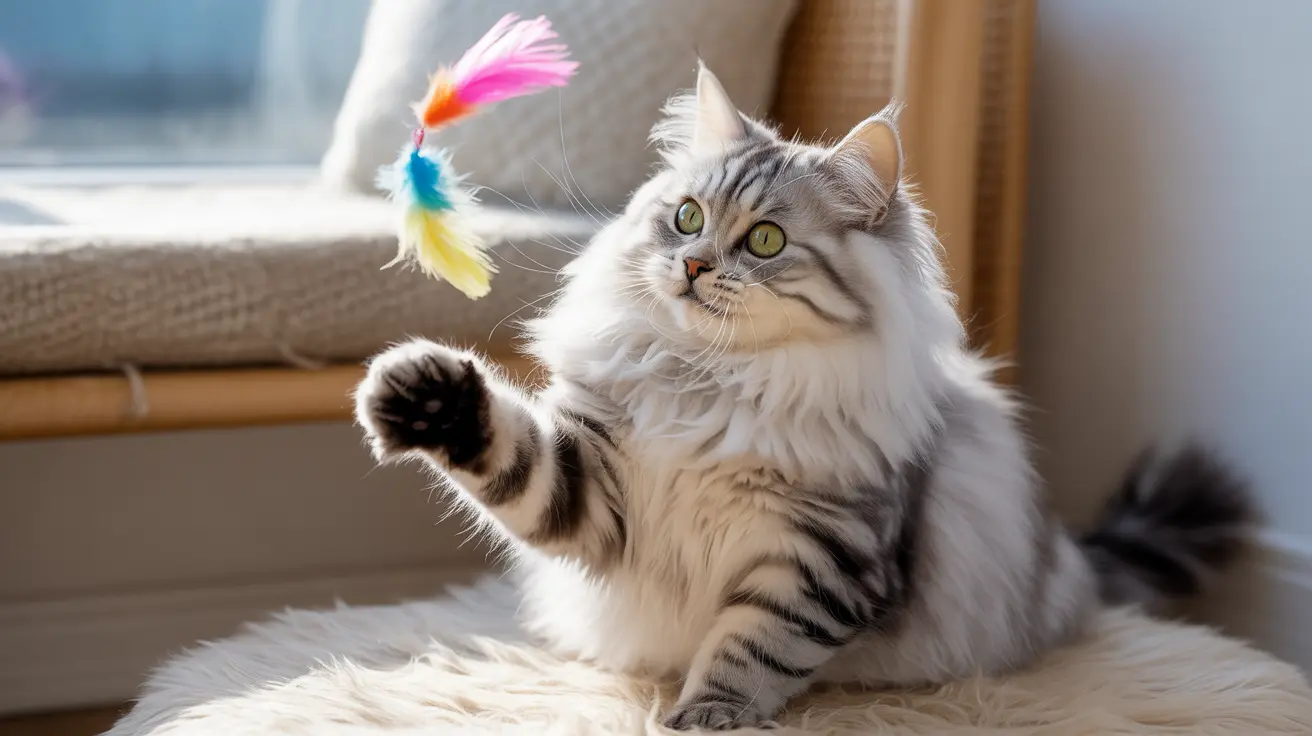The Science Behind Cat Personalities
Scientists have developed several models to understand cat personalities, with the "Feline Five" being the most widely recognized. This framework identifies five core dimensions: neuroticism, extraversion, dominance, impulsiveness, and agreeableness. Each cat displays these traits in varying degrees, creating their unique personality profile.
Research involving thousands of cats has validated these personality models, showing that cats, like humans, have distinct and measurable personality traits that remain relatively stable throughout their lives.
The Feline Five Explained
Each dimension of the Feline Five represents a spectrum of behaviors:
- Neuroticism: From confident to anxious and fearful
- Extraversion: From reserved to outgoing and active
- Dominance: From submissive to assertive and controlling
- Impulsiveness: From thoughtful to reactive and erratic
- Agreeableness: From independent to friendly and affectionate
How Environment Shapes Cat Behavior
While genetics play a crucial role in determining a cat's basic personality traits, environmental factors significantly influence how these traits manifest. Early socialization, living conditions, and interactions with humans and other animals all contribute to a cat's personality development.
Cats raised in enriched environments with positive human interaction during their critical developmental period (2-7 weeks) often show greater sociability and confidence in adulthood.
The Role of Genetics in Cat Personality
Recent research has identified specific genes, including the Oxytocin Receptor Gene, that influence how cats bond with humans. Different breeds often exhibit characteristic personality traits, though individual variations always exist.
For example, studies have shown that certain breeds consistently score higher on sociability scales, while others tend to be more independent or active.
Understanding Your Cat's Unique Personality
Observing your cat's behavior in different situations can help you understand their personality type. Look for patterns in how they:
- Respond to new people and situations
- Interact with other cats and animals
- Show affection or independence
- Handle stress and changes in routine
- Play and explore their environment
Using Personality Insights to Improve Care
Understanding your cat's personality helps you provide better care by:
- Creating an appropriate environment that matches their temperament
- Choosing suitable toys and enrichment activities
- Managing stress and anxiety effectively
- Adapting training methods to their individual traits
- Making informed decisions about introducing new pets
Frequently Asked Questions
How do different cat personality traits affect their relationship with humans?
Cat personality traits significantly impact how they bond with humans. Cats high in agreeableness tend to be more affectionate and seek human interaction, while those high in neuroticism may be more reserved or require gentler approaches to building trust.
What are the main cat personality models used to understand feline behavior?
The primary models are the "Feline Five" and the expanded seven-trait model. These frameworks help categorize cat behaviors across dimensions like sociability, fearfulness, and aggression, providing valuable insights for both owners and researchers.
How can understanding my cat's personality help improve their care and well-being?
Knowledge of your cat's personality allows you to tailor their environment, enrichment activities, and handling methods to their specific needs, reducing stress and promoting positive behaviors.
Why do some cats show stronger attachment or sociability toward their owners than others?
Variations in attachment styles are influenced by both genetic factors (including the Oxytocin Receptor Gene) and early life experiences, particularly during the critical socialization period.
How do genetics and environment influence my cat's personality and behavior?
A cat's personality is shaped by both inherited traits and environmental factors. While genetics provide the foundation, experiences during development and current living conditions significantly impact behavioral expression.
Understanding your cat's unique personality is key to providing the best possible care and building a strong, lasting bond. By recognizing and respecting their individual traits, you can create an environment where your feline friend can thrive.






